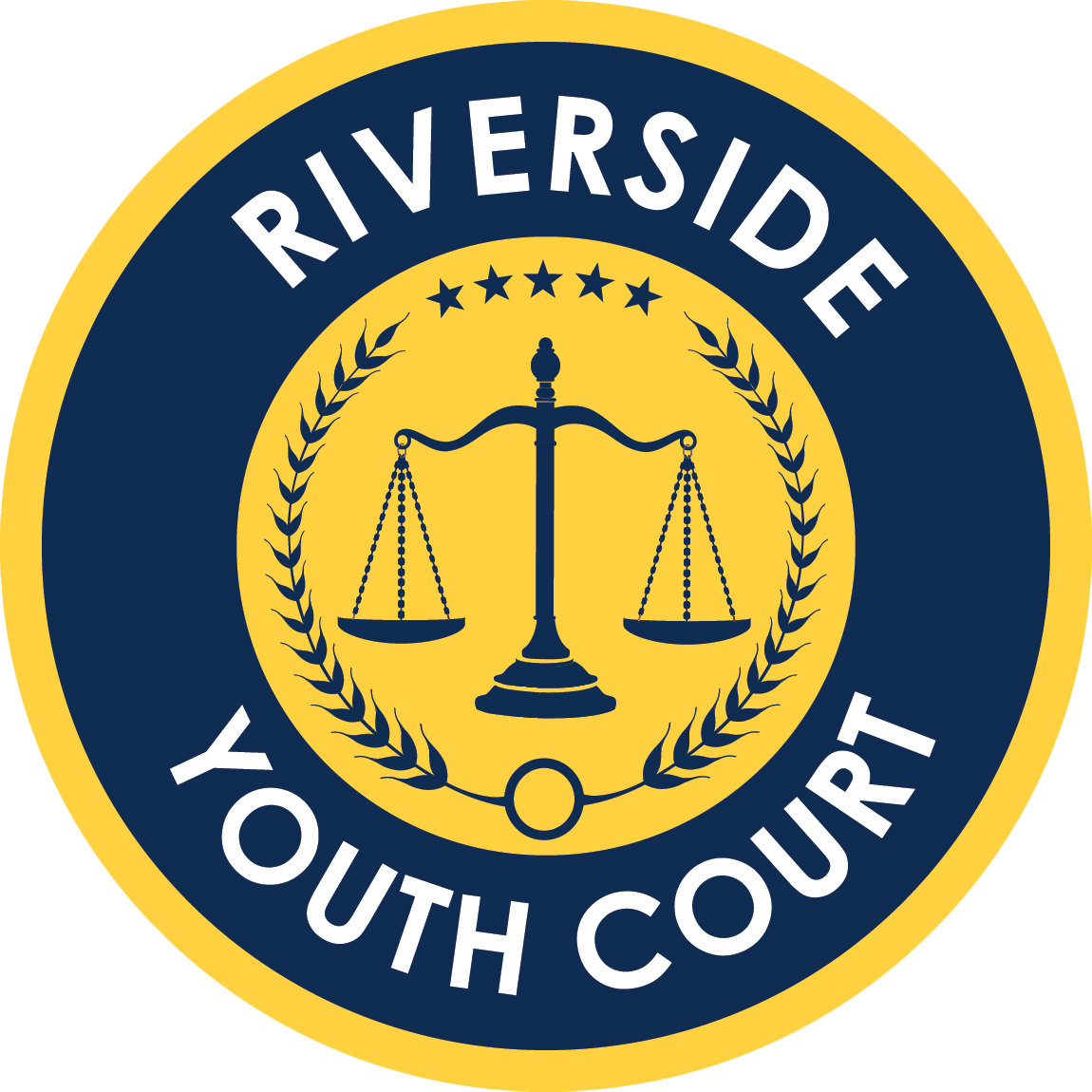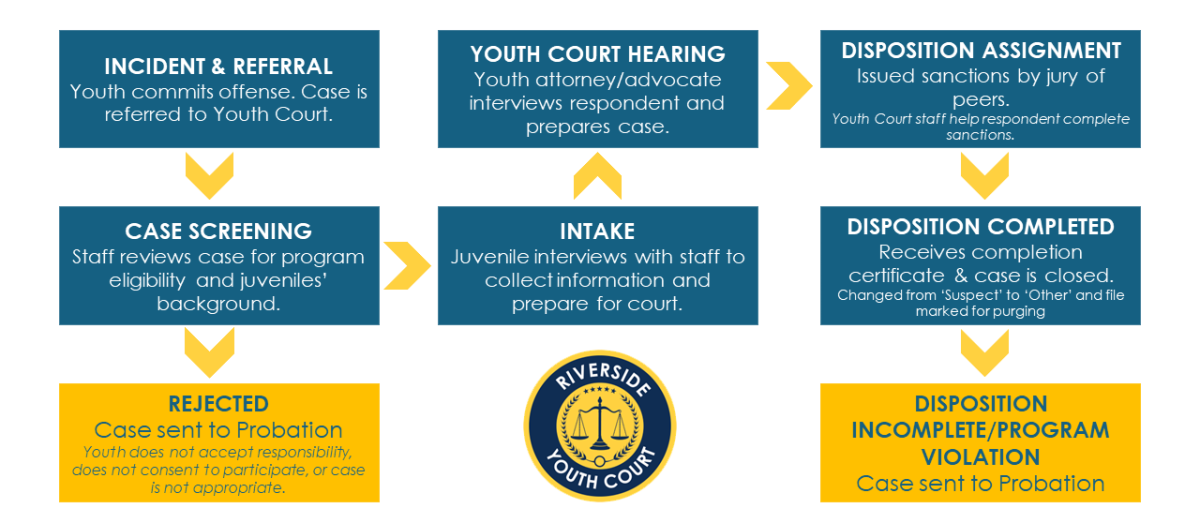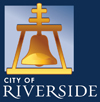 Celebrating 20 Years of Restorative Justice
Celebrating 20 Years of Restorative Justice
Since 2004, the Riverside Youth Court program has been a unique and innovative approach to juvenile justice, acting as an early intervention and diversion program for first-time offenders of misdemeanor crimes. Youth Court is designed to give youth between the ages of 10 and 17, who have broken the law and admitted their guilt, a second chance and is a positive alternative to traditional juvenile court proceedings. Respondents, or those who have committed infractions, are given the opportunity to have their cases heard by a jury of their peers, rather than facing formal legal consequences.
Our youth volunteers, aged 12 to 17 (or 18 if still in high school), play a crucial role in the Youth Court process. They serve as jurors, attorneys, advocates, and court clerks, gaining valuable insight into the legal system while actively participating in the administration of justice. An adult judge will preside over all Youth Court cases, but the youth jury will determine the respondent’s disposition. Through this hands-on experience, volunteers develop leadership skills, empathy, and a deeper understanding of civic responsibility.
By engaging young people in the legal process and fostering a sense of accountability and community service, we aim to promote restorative justice, rehabilitation, reduce recidivism, respect for law enforcement and judicial system, and empower our future leaders.
How does Riverside Youth Court work?

When the disposition is completed, the respondent’s case will be closed. No criminal charges will be filed in the traditional juvenile justice system and the juvenile will have no criminal record. Should the respondent fail to comply with his or her disposition or reoffends while on the program, the Youth Court case will be vacated and referred to the Riverside County Probation Department for traditional adjudication.
How to Become a Volunteer?
Youth Court is open to young people, ages 12-17- and 18-year-olds still attending high school. All volunteers must attend a mandatory training session held twice a year (March & August) prior to participating. The training session will give the volunteer an overview of the Riverside Youth Court program, the juvenile justice system, the concept of restorative justice, and the deliberation process.
Regular Youth Court sessions are held twice a month on Wednesday evenings from 5:00 to 9:00 p.m. at the Riverside Hall of Justice in Downtown Riverside. Volunteers can participate in the program year-round.
For more information on the Riverside Youth Court program, please contact the Youth Court Coordinators:
Officer G. Escobedo at (951) 826-5573
CSO. A. Guerra at (951) 826-5147
or by email at [email protected].
Volunteer Juror Training
Spring Training Session - March 12, 2025
Application Period Opens December 1, 2024
Fall Training Session - August 27, 2025
Application Period Opens May 8, 2025
